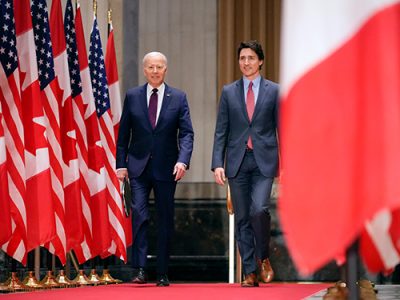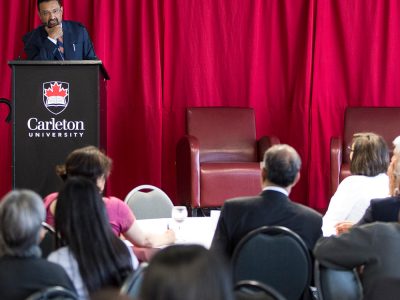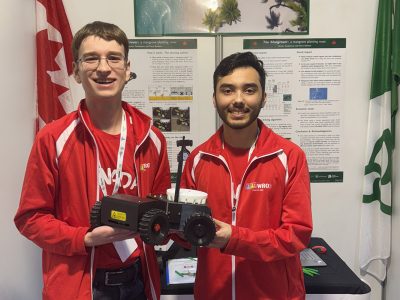By Jena Lynde-Smith and Nehaa Bimal
Carleton University is at the forefront of embracing experiential learning, recognizing its vital role in shaping well-rounded and competent graduates. Through a commitment to hands-on experiences such as co-op programs, extra-curriculars, travel opportunities, and multi-disciplinary research projects, Carleton ensures that students gain practical skills that prepare them to tackle real-world challenges.
- Combining Business and Design to Serve Communities
- Embracing Artificial Intelligence in Computer Science
- Building a Mars Rover
- Digging for Ancient Artifacts Around the World
- Taking Climate Action through Permafrost Training
- Diplomacy in Action Through Declaration Simulation
Combining Business and Design to Serve Communities
Troy Anderson’s and Rob Smart’s course in the Sprott School of Business looks quite different than the usual business course. Through the fourth-year business course, Developing Creative Thinking, students from business, industrial design, and other disciplines team up to develop solutions to community problems. The groups are assigned to a community in Masset, British Columbia; Longido, Tanzania; or Mayo, Yukon – where they travel at some point during the academic year.
“Students learn a number of things from this experience – cross-cultural communication, being able to understand multiple perspectives to a problem, and how to manage change,” says Anderson. “Any solution to any problem involves change.”
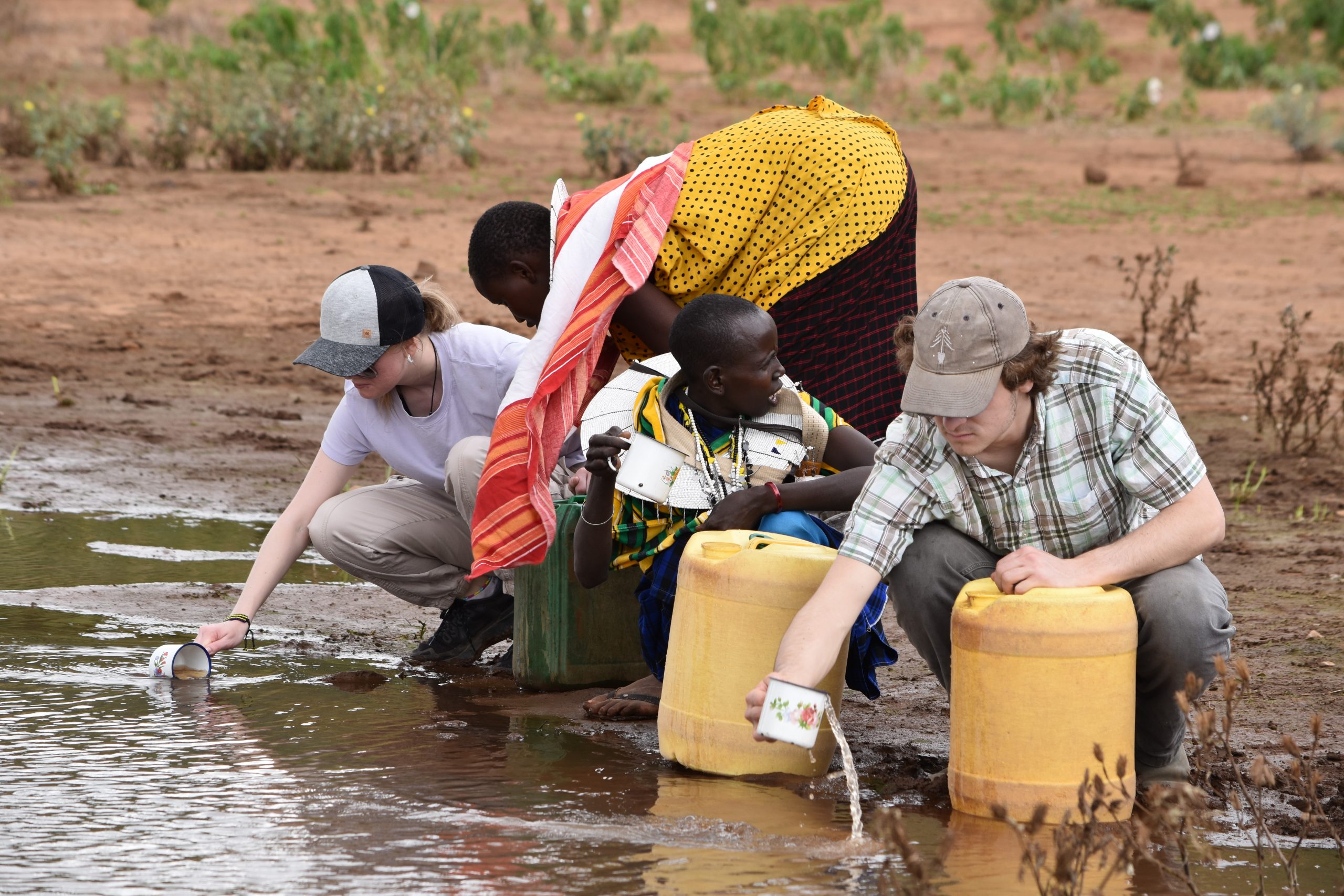
Students gather water in Longido, Tanzania
Projects students have been tasked with in past years have ranged from fuel shortage solutions, clean drinking water, and air quality, to helping launch local business ventures, such as a skateboard manufacturing and e-commerce business led by local Indigenous youth. This past year, the course partnered with Carleton Athletics, raising funds to build a community basketball court in Longido.
For business student James Queen who took the course last year, the problem was soil enhancement in Longido.
“This village in Longido doesn’t get much rain, making it hard for them to grow crops and food,” Queen explains. “We essentially had to think of a way to create water out of thin air.”
Queen and his partner came up with the idea for DewPoint – a water irrigation system that uses charcoal to gather water from the air’s moisture and bottom up watering plants.
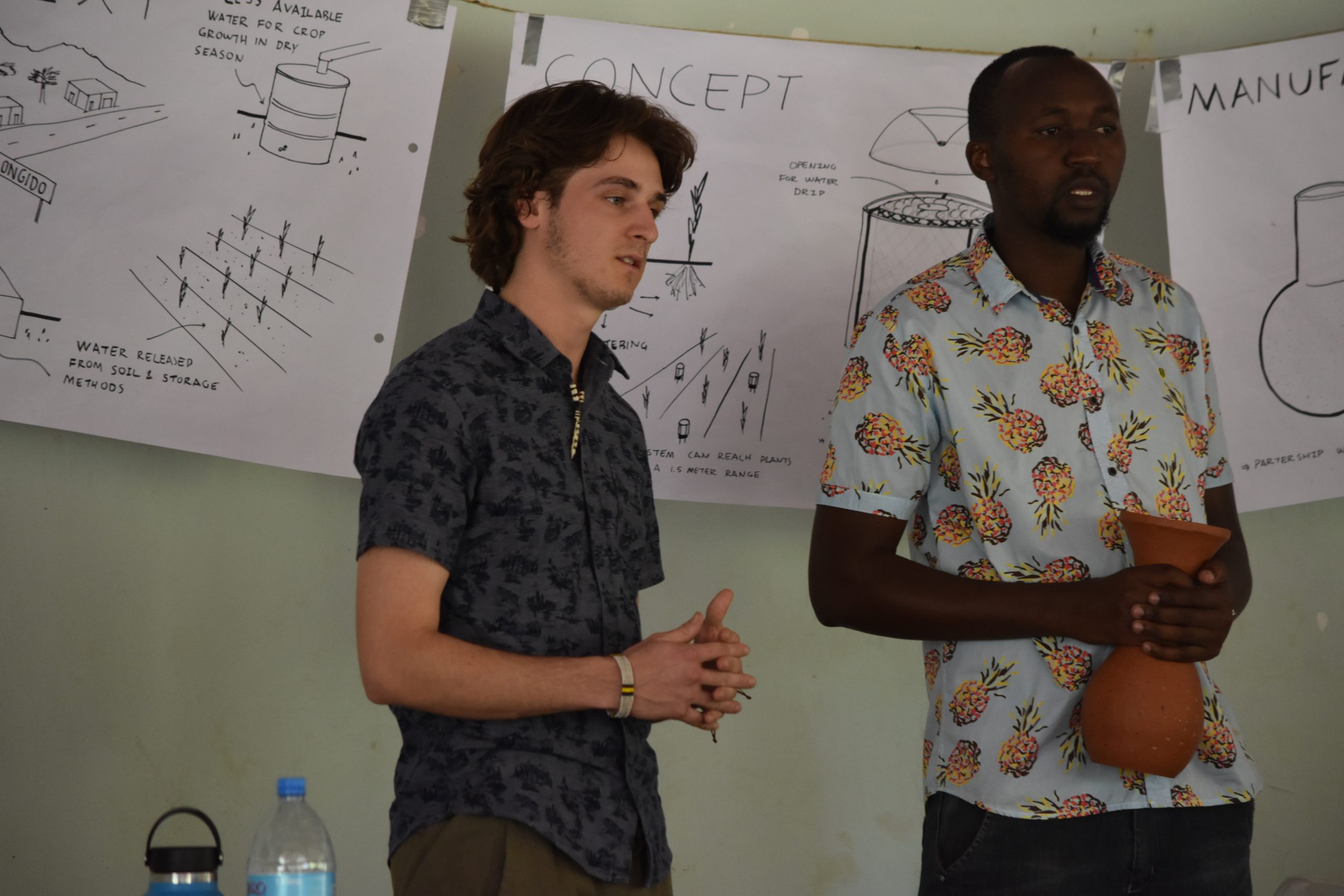
James Queen helps present his partner’s prototype to potential investors and community members of Longido
“The device is designed to be implemented in community gardens,” Queen says.
“This is the first thing I have ever participated in creating. It was extremely fulfilling to be able to see it all come together, and to help find a solution for an important challenge at the same time.”
Once students have their designs in place, the focus turns to the business plan – where to get the supplies, how to pay for them, and what is economically sustainable for the community. The multidisciplinary nature of the course allows students from different disciplines to learn from one another.
For Queen, who had never been across the ocean before, the experience was both overwhelming and enriching.
“The course gave me a lot of insight into what I want to do in the future, and getting to spend time with the people of beautiful Longido really gave me a better understanding of what I value.”
Learn more about the innovative business course here.
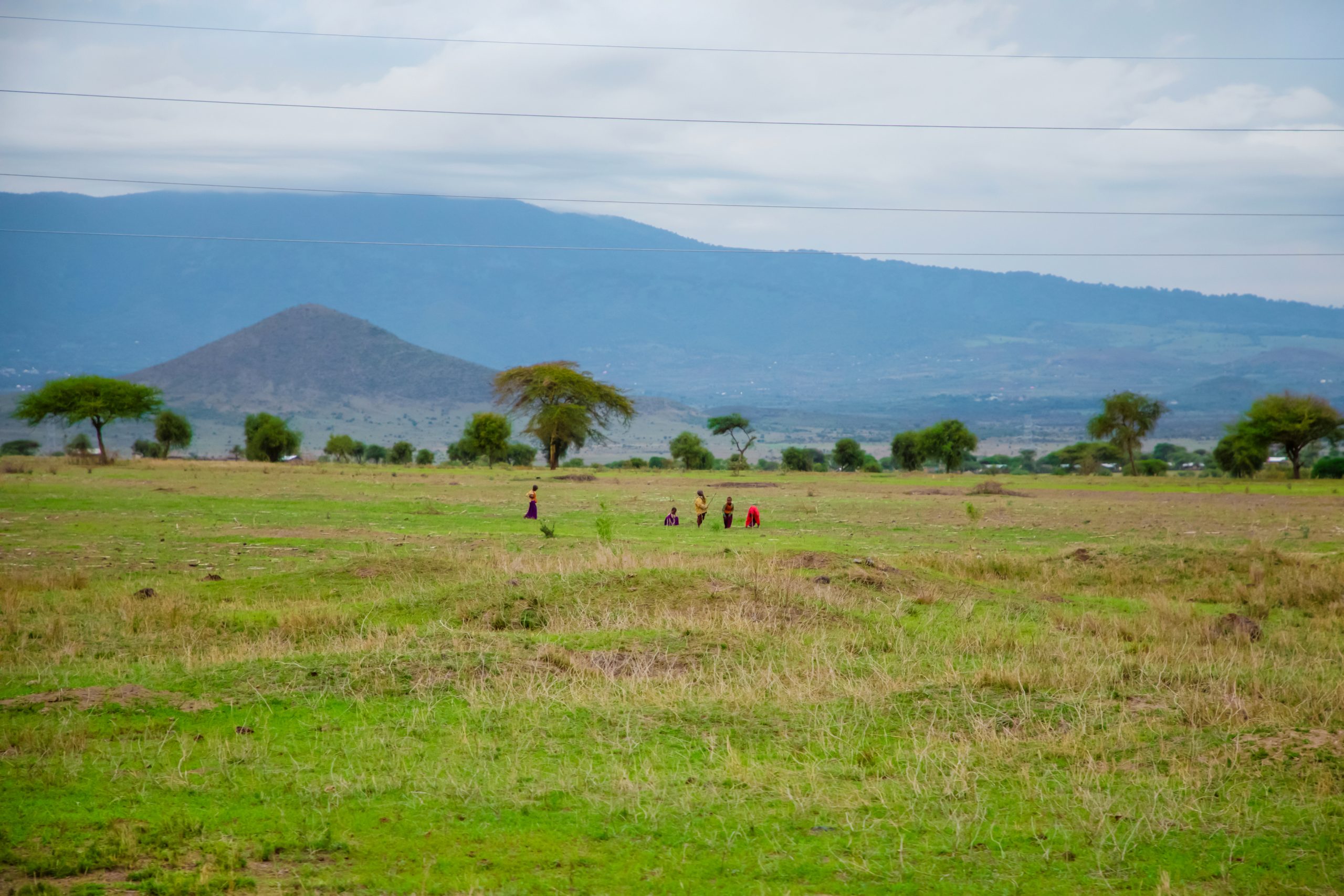
Embracing Artificial Intelligence in Computer Science
Embracing AI in computer science education is essential for preparing students for our evolving technological world.At Carleton, computer science professor Robert Collier is at the forefront of bringing AI into the classroom. Recognizing the importance of preparing students for the evolving technology landscape, he integrates AI into the curriculum of his introduction to computer science course.
“AI is here and it’s here to stay,” says Collier. “It’s important that we learn to work alongside it instead of running from it.”
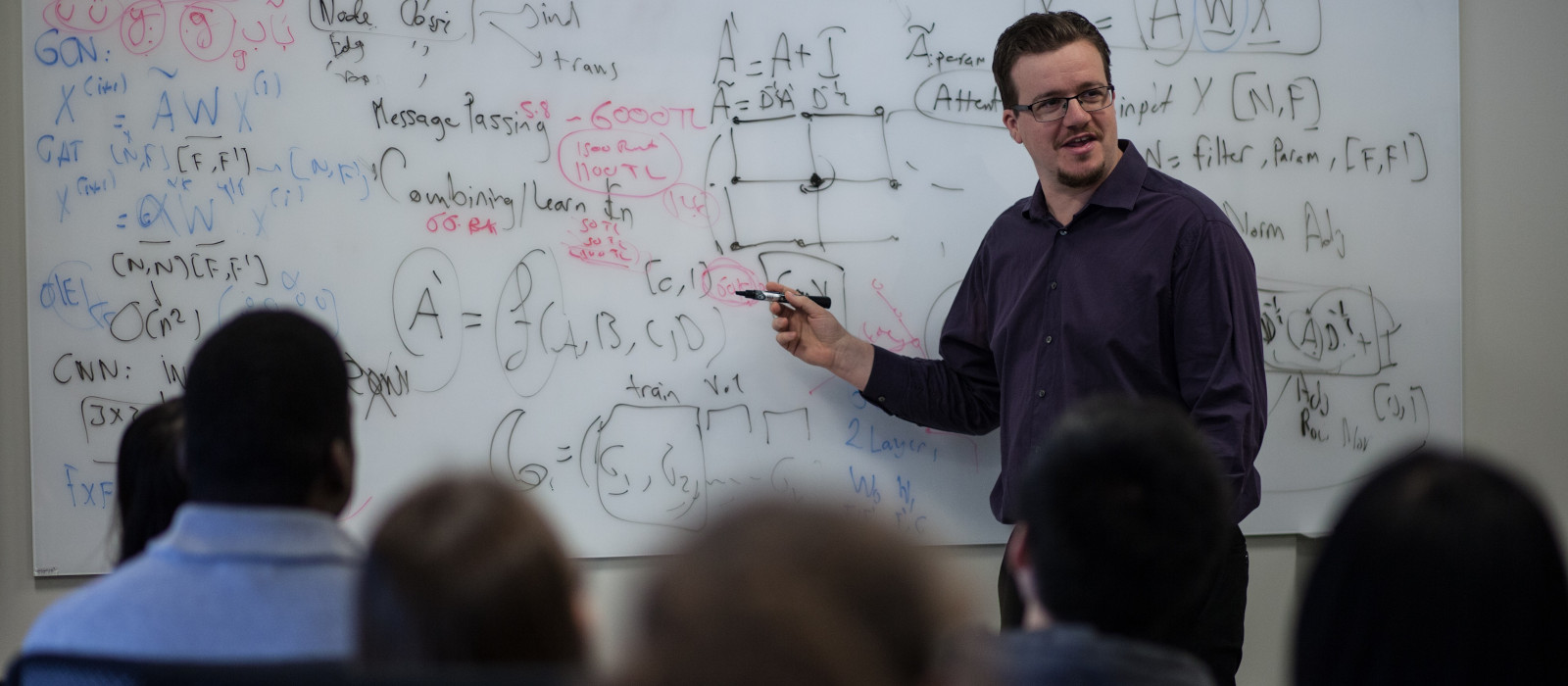
Robert Collier is a professor of Computer Science and member of Carleton’s Working Group on AI for Educators
Through active engagement with AI tools and concepts, students under Collier’s guidance not only enhance their technical skills but also cultivate the adaptability needed to navigate and contribute to the dynamic and rapidly changing world of computer science.
Collier is teaching his students the importance of understanding the fundamentals first and foremost. Once they have that foundational knowledge, he is guiding them on how to use AI to help them with their work, as opposed to doing it for them.
“AI should be seen and used similar to that as an inexperienced intern,” he explains. “It can be there to assist you, but you should be the one with the foundational knowledge, guiding it and reviewing the work for accuracies.”
Students in Collier’s course are being taught how to use ChatGPT to help them create written content and code. In one assignment, they use the tool to describe buildings they are creating in a text adventure game — this helps them experiment with prompt engineering techniques.
In another project, ChatGPT helps them write snippets of code to help with their overall code.
“We want students to be able to use these AI tools to their advantage, while also understanding its limitations,” says Collier.
“Students that come out of our degree are going to prepared to adopt these techniques. They will be prepared to adapt to the next wave of changes and innovations.”

Building a Mars Rover
Carleton’s world-class Faculty of Engineering and Design prepares students for successful and fruitful careers. Given the technical nature of engineering programs, students are afforded many hands-on learning opportunities – whether they’re designing intricate circuitry, testing structural integrity, or programming autonomous systems.
For Riley Rogers, a Carleton aerospace engineering student, and the students involved in the Planetary Robotics Team, the extra-curricular experience has been just as important as that in the classroom.
“It’s hard to prove you’re a really good design engineer if you’ve never designed something before,” says Rogers, the Planetary Robotics Team president. “Getting this experience, especially outside the confines of a classroom, not only looks good on paper, but gives you the confidence in your own abilities as an engineer.”
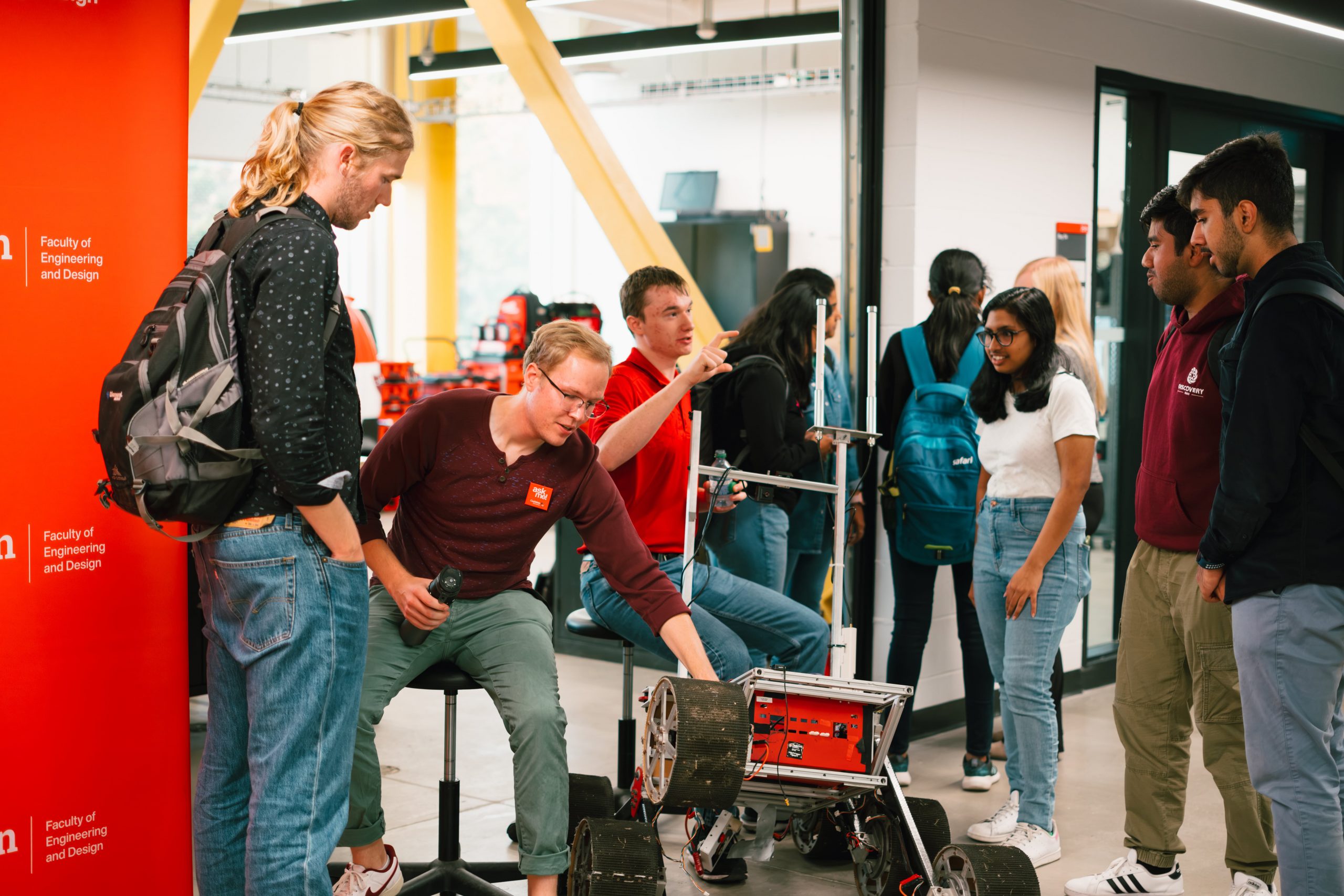
The Carleton Planetary Robotics Team 2023 rover. Photo by Melanie Mathieu.
Carleton’s Planetary Robotics Team is a multidisciplinary group made up of over 200 students from engineering, biology, earth science, arts and social sciences. Their main objective is to design, build, and program a Mars Rover to compete in international competitions. Each year, they aim to compete in the University Rover Challenge and the Canadian International Rover Challenge, hosted in Utah.
“The only requirement is that you’re willing to learn and that you’re not mean to people,” Rogers says.
The team is a student-run program. The knowledge they use to educate each other and build the rovers comes from a combination of their courses, cooperative education placements, and information passed down from their peers. Meeting twice a week in an Engineering and Design Centre lab, the students are broken up into four groups. They source the materials, come up with the design, then build and program the rover.
Rogers attributes landing a co-op position at Tesla to the hands-on design experience he’s been afforded.
“I was told I got the job because I pulled out a robot I had built in the interview,” he says.
“Everyone knows that engineering programs are hard, and sometimes it’s hard to stay motivated,” says Rogers. “That’s why doing something that actually shows you what an engineer would do in the real world is really important.”
Learn more about Carleton’s Planetary Robotics Team here.

Digging for Ancient Artifacts Around the World
Students in Greek and Roman Studies apply the study of archaeology outside the classroom through archaeological fieldwork, whether that be an excavation or an archaeological survey. Students receive academic credit for participating in a field school at several sites based in Italy, Greece, Belize, and Canada for three weeks or more. They work full-time at the sites alongside archeologists, researchers in the field, and post-doctoral students.
Jessie Nelson, a third-year Greek and Roman Studies student double majoring in Law, attended last summer’s excavation at the ancient Latin city of Gabii in Italy with program coordinator Laura Banducci and her peers. The Gabii Project is run as an archaeological field school for students interested in learning state-of-the-art excavation, study, and recording techniques.
“The experience opened my eyes to the environment I want to work in. You handle a lot of historical material like 3000-year-old pottery and it’s impressive to see how much you’re able to excavate. I got to connect with experts in archeology and professionals from different disciplines with different perspectives,” she says.
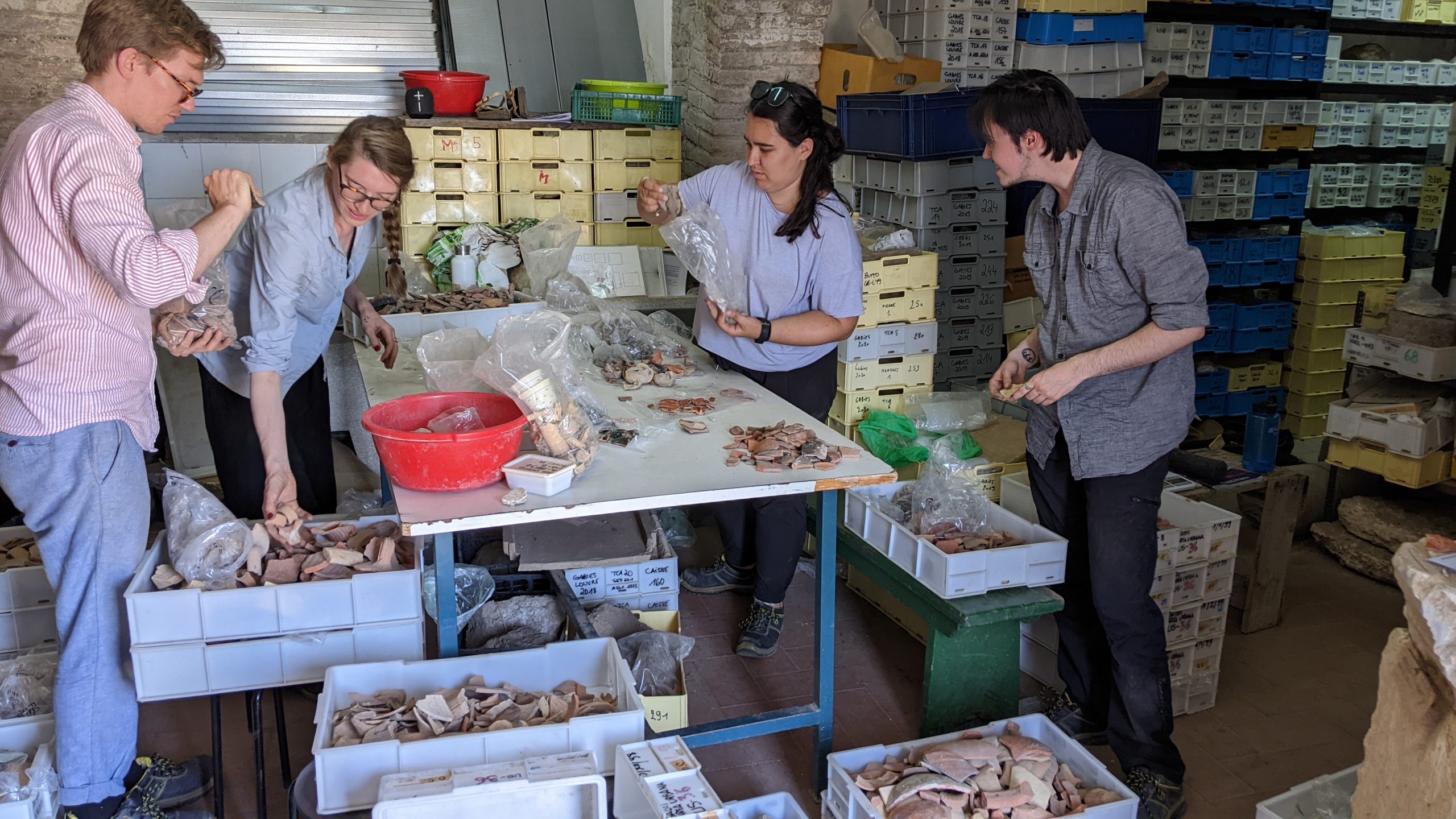
Carleton Students examine archaeological findings at a field school in Italy.
Nelson is also working on an I-CUREUS (Internship-Carleton University Research Experience for Undergraduate Students) project with Banducci that plans to create 3D renderings of artefacts found at Gabii to be displayed in a virtual reality space or “travel museum” for the public to experience.
The program offers a number of travel bursaries and scholarships for students to help cover costs. Charlotte Parry, who graduated from the Greek and Roman Studies program in 2023, was among the first cohort of students awarded funds from Banducci’s Early Researcher Award to be a part of The Gabii Project excavations.
“The opportunity to interact with staff archeologists from around the world who are conducting their own research and working on the primary excavations allowed me to see where this field could take me and my potential,” says Parry.
“The methods and techniques in Italian archeology are applicable to the Canadian cultural heritage landscape. Learning to handle and describe artifacts, as well as excavate and put them in a database are what museums and archeological sites in Ontario need to know,” says Banducci.
Learn more about doing archeological fieldwork for credit at Carleton here.
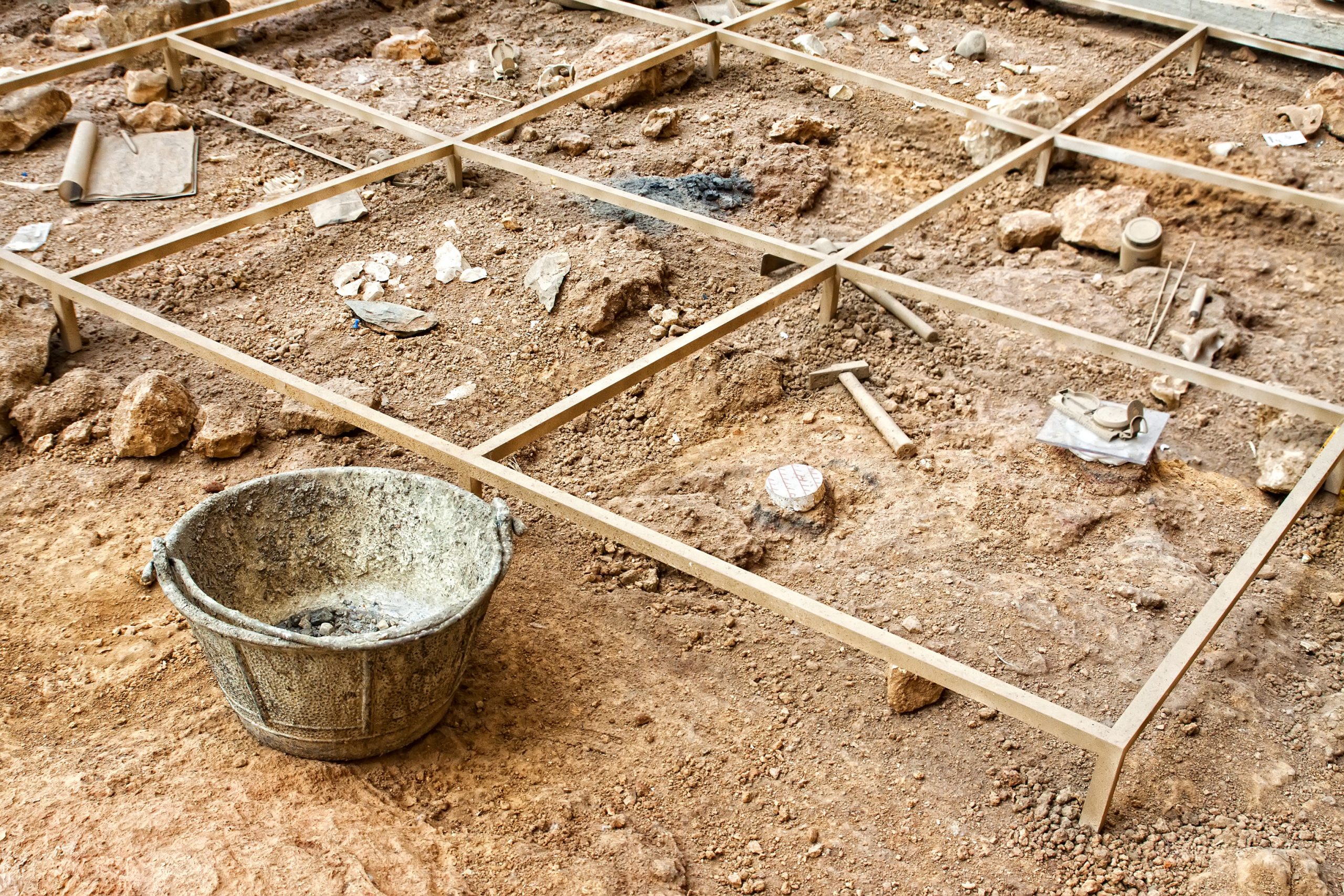
Taking Climate Action through Permafrost Training
“What happens in the North, doesn’t stay in the North” according to climate change researchers. With rising global temperatures, thawing permafrost in Canada’s northwest will have drastic climate impacts. Funded by the Natural Sciences Engineering Research Council’s Collaborative Research and Training program (NSERC CREATE), Carleton’s LEAP program aims to train tomorrow’s Leaders in Permafrost thaw and northern research.
“If a student is interested in permafrost research, in working in Canada’s North, or gaining skills closely related to the North, this would be a program they would be interested in,” says Jenna Snelgrove, the program’s coordinator.
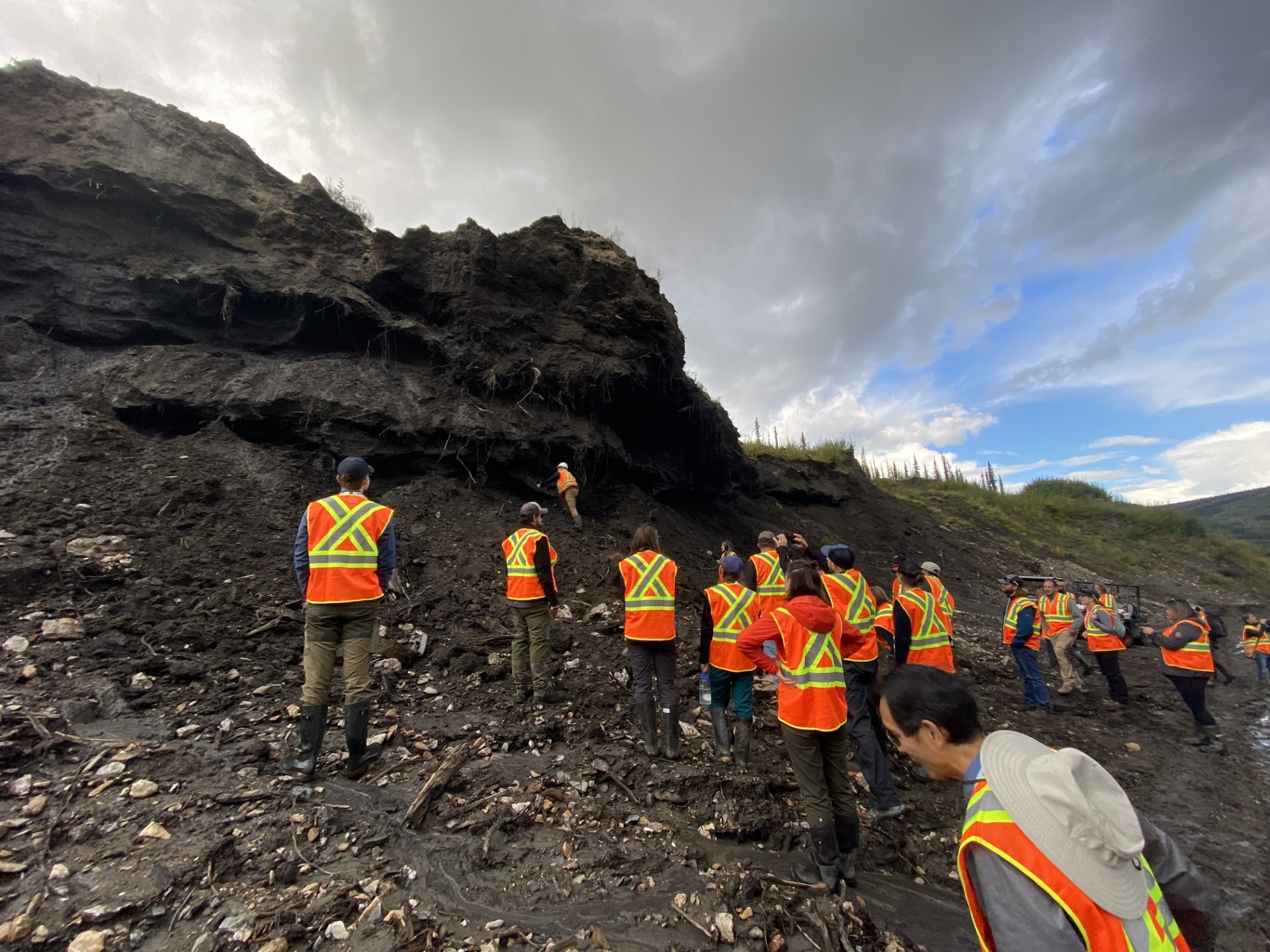
Students in Carleton’s LEAP program conduct permafrost research in Northern Canada.
The LEAP program trains and provides research funding to graduate students who will work alongside co-applicants or partnered universities across Canada on permafrost science and research. Undergraduate students are also welcome to apply for unfunded research opportunities alongside the program’s co-grantee and collaborators, which they can use to complete their thesis.
Students receive weekly synchronous online training, engaging in panel discussions with partnered organizations and experts. This educational program focuses on fostering understanding of interactions in the Northern environment and applying research techniques in the field This technical training will culminate with a field school in the North, allowing students to visit different permafrost sites, conduct field work, and work on projects to address Northern-identified needs. It will also provide students with the opportunity to present research to Northern and Indigenous community members.
“In order to understand permafrost thaw, we need to bridge different disciplines, from hydrology and atmospheric science to engineering and infrastructure solutions,” says Snelgrove.
“Learning to work together in a multidisciplinary field with communities to meet Northern needs is an important part of this work and program.”
Learn more about CREATE LEAP here.
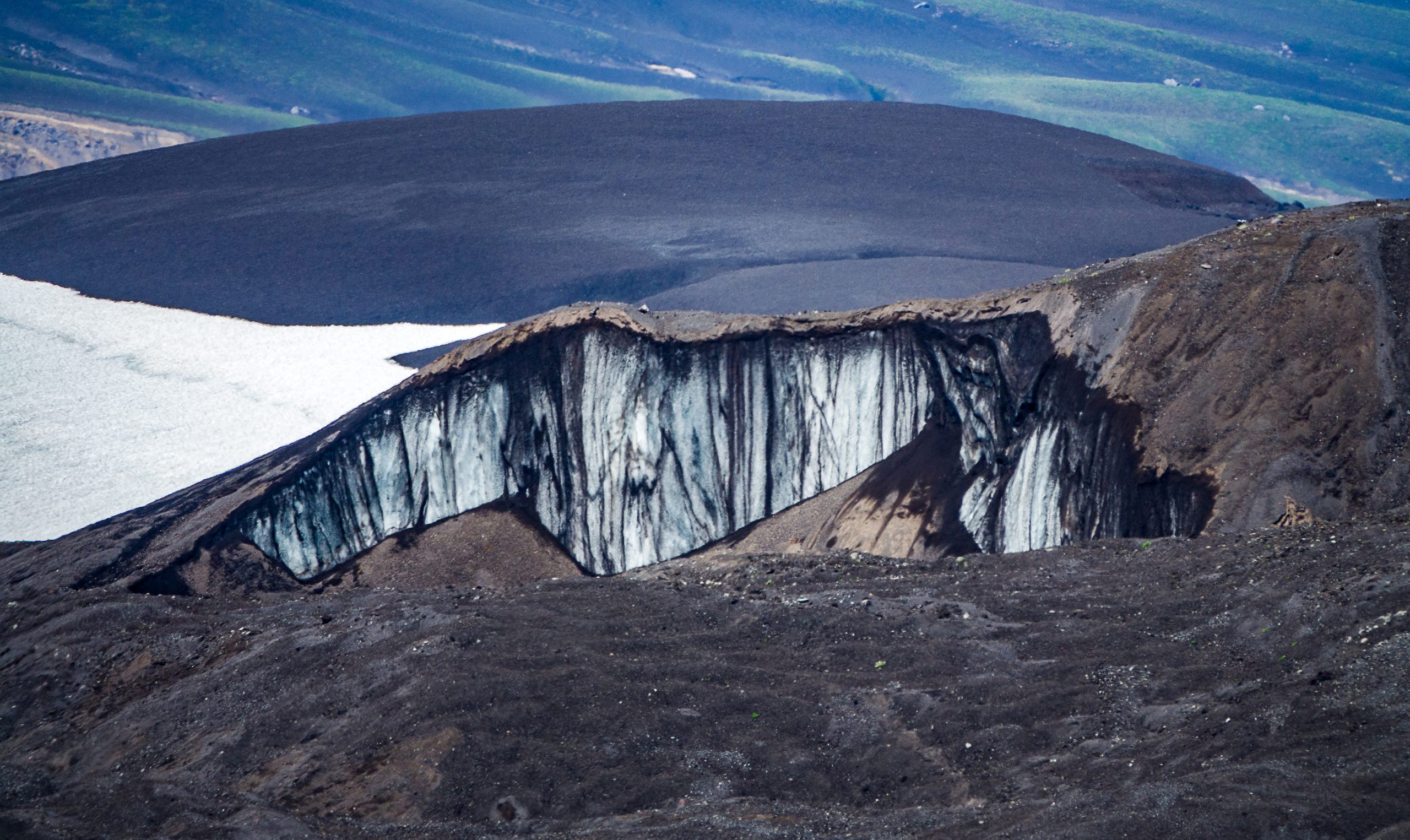
Diplomacy in Action Through Declaration Simulation
Students in Carleton’s European and Eurasian Studies program are gaining experience in diplomacy and global issue resolution in a second-year course with adjunct professor Mukhtar Hajizada. In the course, students are split into teams, with each team representing an international organization.
At the end of the course, all of the groups gather to negotiate a declaration – which is a formal statement or announcements made by countries or international organizations to express their positions, principles, or intentions on various issues.
“Students engaging in these simulations develop crucial skills in negotiation, cross-cultural communication, and leadership,” explains Hajizada. “These skills are essential for careers in international relations, diplomacy, public policy, and other fields that require a nuanced understanding of global affairs.”
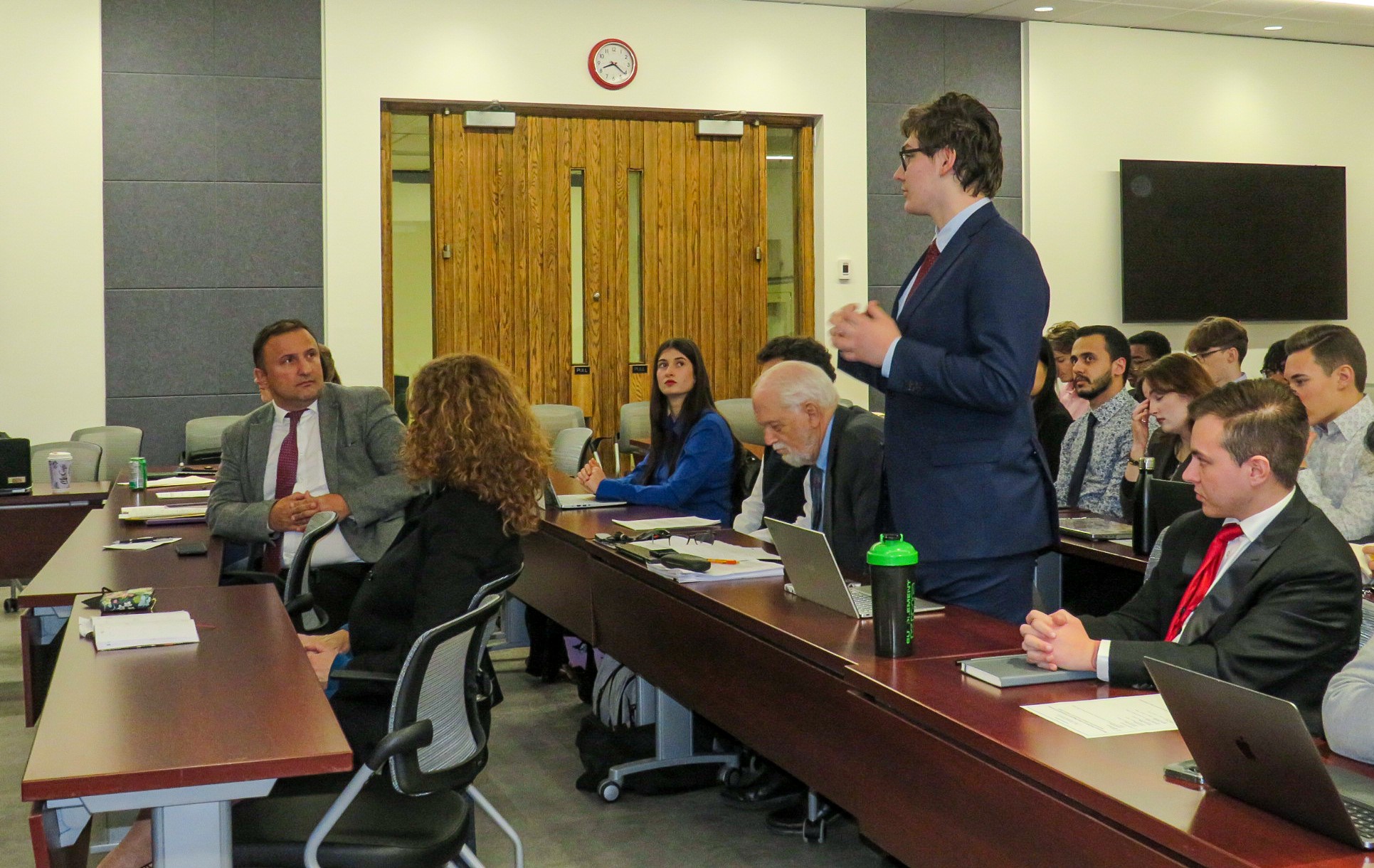
Students participated in a declaration simulation on Nov. 28 and 29. Photo by Chloë Hayes.
The declaration simulation, which was held on Nov. 28 and 29, included keynote addresses from Belgium, Denmark, Poland, Turkey, Hungary and Greece ambassadors.
“It was really interesting getting to observe these officials in-person, especially because some of them notoriously hold different opinions,” Nathan recalls. “Being able to listen to them communicate helped me understand how to answer difficult questions.”
After hearing from the real-life ambassadors, students presented their stance for the declaration.
“You learn a lot from these sorts of simulations,” Nathan says. “It helps you understand why things are the way they are, and why they stay the same. It also provides you with the skills needed to research, adapt and negotiate.”
“These experiences have taught me a lot, and also helped me secure my co-op position at Transport Canada.”
Learn more about European, Russian and Eurasian Studies here.

Tuesday, January 23, 2024 in Artificial Intelligence (AI), Experiential Learning, Student Experience, Teaching and Learning
Share: Twitter, Facebook

